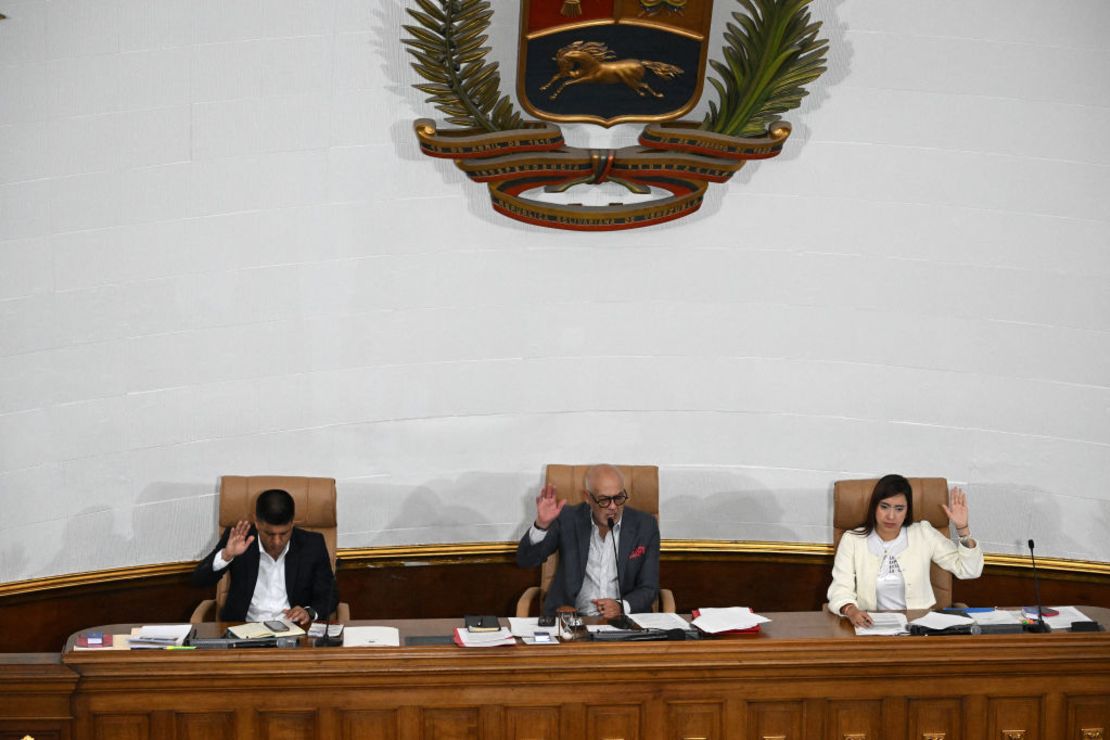Simón Bolívar Law aims to replicate the Nicaraguan model in Venezuela

Experts assure that the approval in record time of the so-called Simón Bolívar Law puts Venezuela one step further towards the Nicaragua model and in short, it facilitates the “legalization of arbitrariness” in the government of Nicolás Maduro, which is already being investigated by the commission of crimes against humanity of the International Criminal Court (ICC).
With this new legislation, the Venezuelan government seeks to punish those who, according to its criteria, request sanctions for the country or echo them, but it does not make clear under what terms it is considered that someone promotes a sanction.
This law has 20 types of sanctions, which will also not be imposed by a judge but by administrative officials and in most cases gives a lot of power to the comptroller of the Republic, who is in charge of political disqualifications. For the purposes of this text, a person can be disqualified for up to 60 years.
There are also financial fines and prison sentences, according to what was revealed by the newspaper The Time from Colombia.
With these sentences of up to 60 years, it would basically be a kind of life sentence, a condition that was abolished in the country in 1864.
“Unfortunately we are seeing how here in Venezuela these patterns are being replicated and also in total defenselessness,” said Alí Daniels, co-director of the NGO Acceso a la Justicia, to The Time.
Why does the Bolívar Law direct Venezuela towards a model similar to that of Nicaragua?
The path similar to Nicaragua is specified in the following article 23:
«A r is creatednational registrationwhich will incorporate the identification of natural or legal persons, national or foreign, with respect to whom there is a well-founded presumption of being involved in any of the actions contrary to the values and inalienable rights of the State, provided for in this Law, for the purposes of imposing restrictive, temporary and administrative economic measures, aimed at mitigating the damage that their actions cause against the Bolivarian Republic of Venezuela and its population.
The person or entity included in that registry may be prohibited from entering the country, suspend the visas that have been granted or deny those that you request. Your assets may also be frozen, the export of merchandise prohibited, the incorporation of commercial or civil companies or participation in capital-based entities, among others, may be prohibited.
“The law emphasizes the patrimonial issue, the forfeiture of ownership, imposing fines… unfortunately it is replicating what has been a pattern in Nicaragua where they not only outlawed the NGOs, but also took away their assets and the State appropriated them, as in the case of the Society of Jesus, which had a university,” highlights Daniels.
Related News
Independent journalism needs the support of its readers to continue and ensure that the uncomfortable news they don’t want you to read remains within your reach. Today, with your support, we will continue working hard for censorship-free journalism!
